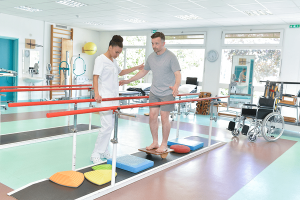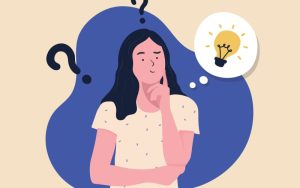Insomnia is a common sleep disorder that can make it hard to fall asleep, hard to stay asleep, or cause you to wake up too early and not be able to get back to sleep. You may still feel tired when you wake up.
The medical community has long believed that insomnia is one of the main symptoms of depression. In recent years, many studies have pointed out that there is a complex interaction between depression and insomnia.
Apart from traditional medication and psychotherapy, European and American clinical research findings showed that TMS provides great results for depression and insomnia. In 2013, scientists divided 120 chronic insomnia patients into three groups and received 1) TMS therapy, 2) drug therapy (Estazolam), and 3) cognitive behavioral therapy for two weeks. Results show that patients treated with TMS experienced a 25% increase in sleep time. In addition, their prolongation of rapid eye movement (REM sleep) and slow-wave sleep (slow-wave sleep) improved by 80% compared with before treatment, which was a greater improvement than the other groups. Clinical studies reported that hyperactivity of cortex in patients with insomnia. Therefore, having efficient slow-wave-sleep is especially helpful for more effective memory consolidation, fatigue reduction, and general restoration. The same study also confirmed that TMS can help reduce the brain’s stress hormone – cortisol to near-healthy levels.
Neuroscientists have integrated 28 studies – a total of 2357 individuals with insomnia. All of which received 2-4 weeks of TMS and the results showed a significant improvement in their sleep quality. It is believed that TMS can be used to complement or even replace traditional drug therapy and psychotherapy to regulate the activity of neurotransmitters, reduce excitability by stimulating the relevant area and increase the neuroplasticity of the brain.
Reference
Feng, J., Zhang, Q., Zhang, C., Wen, Z., & Zhou, X. (2019). The Effect of sequential bilateral low‐frequency rTMS over dorsolateral prefrontal cortex on serum level of BDNF and GABA in patients with primary insomnia. Brain and Behavior, 9(2), e01206.
Jiang, B., He, D., Guo, Z., Mu, Q., & Zhang, L. (2019). Efficacy and placebo response of repetitive transcranial magnetic stimulation for primary insomnia. Sleep Medicine, 63, 9-13.
Jiang, C. G., Zhang, T., Yue, F. G., Yi, M. L., & Gao, D. (2013). Efficacy of repetitive transcranial magnetic stimulation in the treatment of patients with chronic primary insomnia. Cell biochemistry and biophysics, 67(1), 169-173.






